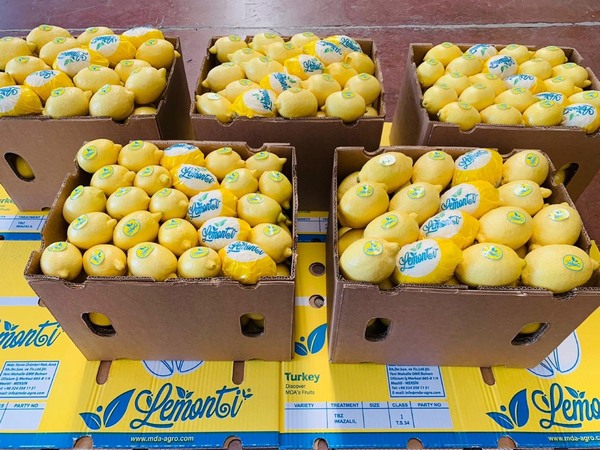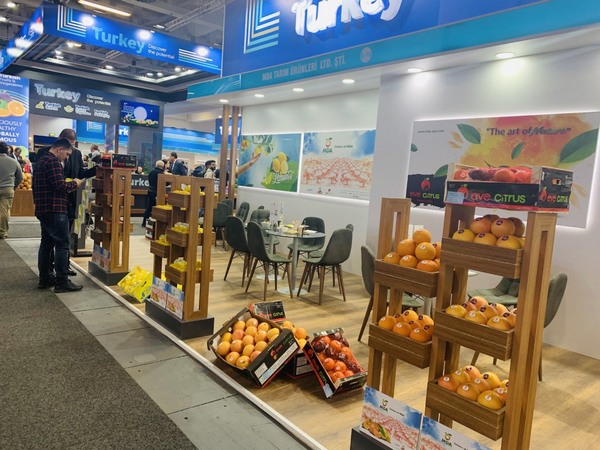The Turkish lemon season has already started, but exporters might want to wait a while for the Argentinian and South African lemons to disappear from the market. Overall sizes are similar to last year and Turkish growers have worked hard to make sure they adhere to the European regulations when it comes to pesticides.
Turkish exporters have been working hard on educating growers on maintaining the correct pesticide levels in order to comply with European regulations, Mustafa Arslan, owner of MDA Agro, explains: “We’ve mostly been working on our pesticide and sustainability goals to package and export the healthiest fresh fruits. All Turkish exporters, Akdeniz Exp. The Union and the Ministry of Agriculture are meticulously examined in the relevant processes after intensive training on teaching all necessary characteristics to farmers, growing suitable products, spraying, fertilizing and harvesting. This season, we can start to reap the fruits of all these efforts with a general health policy based on EU rules.”

According to Arslan, demand for lemons is rather good at the moment, but Argentinian and South African lemons are still in the market. This means Turkish exporters should bide their time. “This season the demand for lemons is very strong, normally we wouldn’t expect this from European countries, the Balkans, Russia, Ukraine and from the Baltic countries, because as we know Argentina and South African lemons will see the last arrivals until the end of August and September, so they have the market! To counter that we’ve started to harvest later, and this season we plan our marketing to start in October. We’re working a lot to be ready for the high season in October-December period.”
Once the South African and Argentinian lemons are out of the market, demand for the Turkish produce should increase, Arslan says. “I expect demand for Turkish lemons to increase after September and most volumes should be headed towards European countries, as Turkish companies are ready this season for the pesticides and sustainability procedures. Calibers seems the same as they were last year. The weather is fine at the moment for the fruit’s growth. This season we’re mostly seeing medium sizes that we have to pack and export, which should be an advantage to sell the produce more easily.”

Arslan states that they used to export to the Balkan countries, but the prices and competition have made it so this market isn’t viable anymore: “For MDA Agro, our main markets are Europe, Baltic countries, Canada and the countries in the Far East. In the last few years we did not focus on the Balkan countries, because there are so many exporters that export to these countries with medium quality like Class1, but due to the prices and the competition this is becoming impossible to keep doing.”
“We work a lot on reducing pesticides and ensuring sustainability within our industry. Turkey is an important supplier and everybody must be able to be sure of the health policy that we adhere by. We being all of the Turkish exporters. All of us are doing our jobs to grow, pack and export. However, our first priority is to produce the healthies fruits that we can. We care about this a lot and our main focus is to improve this within all kind of fruits and vegetables. Anyone can take and eat a Turkish fruit or vegetable without having doubts. Just make sure to check who packs and exports the fruit!” Arslan concludes.
For more information:
Mustafa Arslan
MDA Agricultural Products
Mobile: +90 541 348 39 09
Email: [email protected]
www.mda-agro.com
